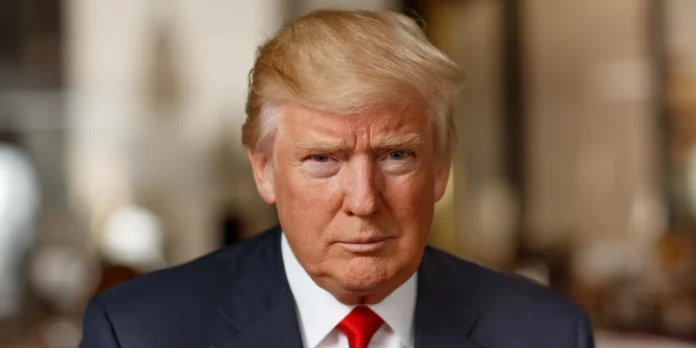The United States voted alongside Russia in the United Nations Security Council (UNSC) to support a resolution that downplayed Moscow’s role as the aggressor in the ongoing war in Ukraine. The vote has drawn sharp criticism from European nations, who view it as a betrayal of international law and Ukraine’s sovereignty.
This vote, on the three-year anniversary of Russia’s full-scale invasion of Ukraine, highlighted a significant shift in the United States’ stance on the conflict. The American vote has caused a rift between long-standing allies, as it contradicts the European-led approach to condemning Russia’s actions in Ukraine and seeking accountability for the invasion.
The US-backed resolution, which was introduced by Washington to the UN General Assembly and Security Council, did not explicitly label Russia as the aggressor in the conflict or affirm Ukraine’s territorial integrity. The resolution called for an end to the fighting, urging both Russia and Ukraine to reach a peaceful settlement. It mourned the tragic loss of life but avoided recognising Russia’s invasion as the cause of the conflict.
In contrast, a resolution led by Ukraine’s European allies was much more direct. The European-backed General Assembly resolution, which passed with 93 votes in favour, strongly condemned Russia’s invasion of Ukraine, calling it a “full-scale invasion” with devastating consequences. The resolution also demanded Russia’s immediate withdrawal from Ukraine’s internationally recognised borders and highlighted the importance of Ukraine’s sovereignty.
The US, however, chose to support its own resolution, which was seen by many as a significant departure from its usual policy in support of Ukraine. The US also voted in favour of its resolution at the Security Council, where it passed with 10 votes, including Russia’s vote. This was despite European efforts to amend the language to more strongly condemn Russia’s actions and reinforce Ukraine’s territorial integrity.
The shift in US policy regarding the Ukraine war comes amid increasing signs of diplomatic outreach by US President Donald Trump’s administration. While former President Joe Biden has maintained a strong stance against Russia’s actions, the US’s support for a resolution that did not hold Russia fully accountable reflects broader changes in US foreign policy, especially under the influence of President Trump.
Trump has publicly expressed support for ending the war and has criticised Ukrainian President Volodymyr Zelensky, a departure from Biden’s steadfast backing of Ukraine. The US seems to be pivoting towards a position that encourages dialogue between Russia and Ukraine to end the conflict, even if that means not recognising the full scale of Russia’s aggression.
In response to the vote, French President Emmanuel Macron held talks with Trump at the White House, discussing how the US might adjust its policy toward the Ukraine conflict. Meanwhile, European leaders have been scrambling to respond to this new shift, which threatens to undermine years of Western unity in opposing Russia’s actions.
The US’s decision to vote in favour of a resolution that did not specifically condemn Russia has sparked outrage among European diplomats. France’s Ambassador to the UN, Nicolas de Rivière, strongly criticised the passage of the US-backed resolution, arguing that rewarding aggression would undermine global peace and security.
“There will be no peace and security anywhere if aggressions are rewarded, and if the law of the jungle wins,” de Rivière said, highlighting the need for clear accountability for Russia’s invasion of Ukraine.
UK Ambassador to the UN, Barbara Woodward, echoed these sentiments, pointing out that only a “just peace” that recognises Ukraine’s sovereignty and the origins of the war could provide lasting peace. “Russia chose to launch a war of aggression against a sovereign state,” she said, stressing that any peace agreement must reflect that reality. Woodward also highlighted that any peace settlement would only be legitimate if it involved Ukraine’s agreement, adding, “No peace will be sustainable without Ukraine’s consent.”
The disagreement between the US and its European partners is emblematic of the broader divide that has emerged in Western foreign policy regarding Ukraine. While the US has expressed growing impatience with the ongoing conflict and its costs, European nations remain committed to supporting Ukraine’s territorial integrity and opposing Russia’s invasion.
Despite the uproar from its European allies, the US has framed its resolution as a necessary first step towards peace. US charge d’affaires Dorothy Shea described the resolution’s passage as the Security Council’s “first action to firmly call for an end to the conflict.” Shea presented the resolution as a constructive effort aimed at initiating peace talks, claiming, “This resolution puts us on the path to peace. It is a first step, but a crucial one.”
Russian Ambassador to the UN, Vasily Nebenzya, also praised the US’s resolution, describing it as a “starting point for future efforts toward a peaceful settlement.” Nebenzya emphasised that the text was not perfect but represented an important step towards a “future-oriented” dialogue.
This rhetoric has not been well received by European diplomats, who argue that any resolution that does not hold Russia accountable for its actions is fundamentally flawed. The European Union, led by France and the UK, has long taken a stronger stance against Russia and has repeatedly called for Moscow to face consequences for its invasion of Ukraine.
The rift over the UN resolutions reflects a growing divergence between the US and Europe over how to approach the conflict in Ukraine. While European nations remain firmly behind Ukraine, calling for a resolution that guarantees its sovereignty and condemns Russia’s aggression, the US appears to be recalibrating its position. With President Trump’s influence looming large, there are concerns that the US may seek to pressure Ukraine into negotiations, potentially under terms that favour Russia.

